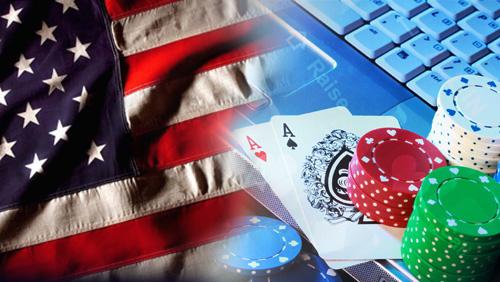5 Jul
(Photo: Highstakesdb.com)
When the United States Department of Justice (DOJ) shut down PokerStars and Full Tilt Poker on poker’s “Black Friday”, everyone in the poker community knew that nothing would ever be the same. But while absolutely devastating at the time, many silently hoped that however painful it was to get there, the result would ultimately be positive moving forward.
The theory went like this: gone were the days of an unregulated, “wild west” setup where segregated player accounts and dedicated game security were optional for sites. Now, regulation would come in and ensure a safe, legal game that would be a launchpad for even bigger and better days than those of the initial poker boom.
If only. Five years out from that fateful day – and three states having adopted online poker later – a broad and meaningful US regulatory framework almost seems farther away than ever. It didn’t have to be this way, but here we are.
So what happened? What’s really stopping online poker in the United States? And more importantly, is there any chance that something will change in the future and launch that next poker boom that we are all hoping for?

Reason #1: Dividing the pie between competing special interests
In my opinion, the biggest problem for US online poker right now is that there are too many special interests involved. This dynamic is going on in state legislatures across the nation, but the prime example of this is the horse-trading currently unfolding in the attempt to make California online poker regulation a reality.
Without going too much into the details, the main sticking point is what is being called the “bad actor clause”. If enacted into law, what this would broadly mean is that sites that were spreading poker games to US customers after poker’s “Black Friday” would be penalized before being allowed to enter into a new, state-regulated market.
Generally, this punishment comes by way of restricted access, which might take the form of being barred from operating for a period of time. Alternatively, “bad actors” can pay a substantial fine in lieu of restricted access, and will then be permitted to return to the market immediately.
Proponents of the bad actor clause say this is only fair punishment for these sites’ ethical lapses and harm done to consumers. If I were a cynical person, I might quip here that no one should be surprised that “consumer protection” translates into a fat check for the government.
Anyway, the fact remains that in reality, the “bad actor” clause has nothing to do with consumer protection or the righting of past wrongs. It actually has everything to do with the effect that PokerStars’ entry into the California market will have on the ability of gaming interests not partnered with the online poker giant to get a piece of the online poker pie. Afraid that they will never be able to capture serious market share, those interests not in partnership with Stars either want to make it unprofitable for Stars to compete with them, or to just plain ban them from trying.
And if you think I’m being too cynical, consider this: all of the coalition of California gaming interests currently lobbying against the “bad actor” clause have cut a deal with PokerStars. Those who have not cut a deal with PokerStars? Let’s just politely say that, unsurprisingly, every single one of them is apparently very concerned about consumer protections. Coincidence? Hardly.
Every state needs to bring this toxic soup of special interest horse-trading to some kind of resolution before legislation can be passed. And while it’s proven to be less of a problem in some states, it has brought things to a grinding halt in others. It’s clear that the fight over how to divey up the pie of online gaming revenues is one of the main reasons US online poker is currently stalled.
Reason #2: Poker makes less money than other forms of gaming
The other key dynamic that I believe is stopping US online poker is that it simply isn’t as lucrative for state coffers as other forms of online gaming are. Although online poker has proven to be profitable even in a small state like New Jersey, it hasn’t proven to be so profitable that it’s on every state legislator’s “must-have” list when crafting an appropriations bill for the state budget. This also means that when presented with the type of special interest Gidion’s knot that we’re seeing in California, there is very little incentive for politicians to really put their necks out to try and cut it.
Contrast this dynamic with what we are seeing with Daily Fantasy Sports (DFS). DFS is widely loved by gamblers of all stripes and has the potential to pull in significant tax revenue for state legislatures. Moreover, the fact that sports betting is illegal in many places means that even in those states with land-based casino interests, those special interests don’t perceive themselves as in direct competition with DFS.
The end result is that it should come as no surprise that once a state such as NY made sure it could get its cut of the action, it legalized DFS very quickly. Of course, poker would be much more of a revenue generator for politicians if there were a combined liquidity pool, but good luck explaining that to (most) of them. In a busy legislative session where pols are hunting for dollars, there are simply more lucrative places to find them than in a special-interest war over online poker.

Pressuring state legislators is key
Although the dream of a truly “US” online poker player pool faces an uphill battle, some progress has been made. It’s not as deep or as fast as players hoped, but every little bit counts. Staying involved and engaged with the “one state at a time” approach will hopefully allow us to reach a critical mass where US online poker can no longer be stopped, and after which all the dominos to fall into place.
